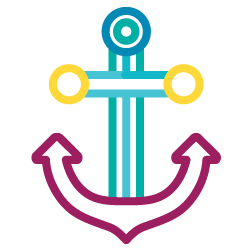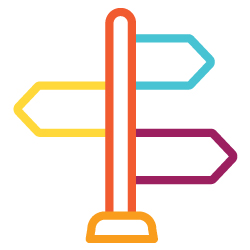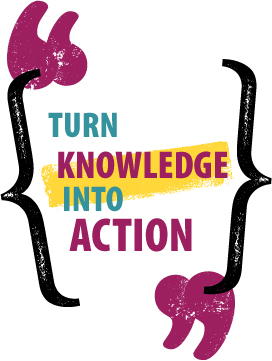
Self-Advocacy
An important skill needed by youth with disabilities is learning how to advocate for themselves and the supports they need. This means learning about their rights and options and being able to communicate their needs (e.g., assistive technology, accommodations) both at school and work.
As professionals, you are able to provide opportunities for youth to practice their self-advocacy skills, connect youth to training, and encourage families to foster appropriate independent living skills.
Practices | Strategies | Tools

Promising Practices
Goals of Self-Advocacy Training:
These are some of the outcomes used to measure the success of self-advocacy training activities.
Be able to communicate with others
about their disability and accommodation needs
Understand laws and their legal rights
and how these change as an adult
Identify potential areas of interest
for careers and education
Set short and long term goals
for their future

Strategies
Action Steps for Teens
The following strategies can be incorporated into your self-advocacy training or in the supports and services you provide to youth.
If the youth you are working with are looking for a place to start when preparing for adulthood, these are some things they can do right now to get ready! Part of being a great self-advocate is learning to take action to achieve goals for yourself. These steps can help youth identify goals and take action on things that are meaningful to them and make becoming an adult not as intimidating.

Communication and Engagement Strategies

Training Tips
These suggestions are based on lessons learned through Wisconsin Promise and other projects focused on working with youth and families. Sometimes individualized counseling, coaching, mentoring, and training is best, but holding group training provides opportunities for peer interactions and practice that can have a positive impact on youth learning.
Tools
Following are some goals to strive for to improve advocacy skills for families. You can introduce the following resources to families or use them to supplement services and supports you provide.
Tools and Activities
Related Topics
Training

